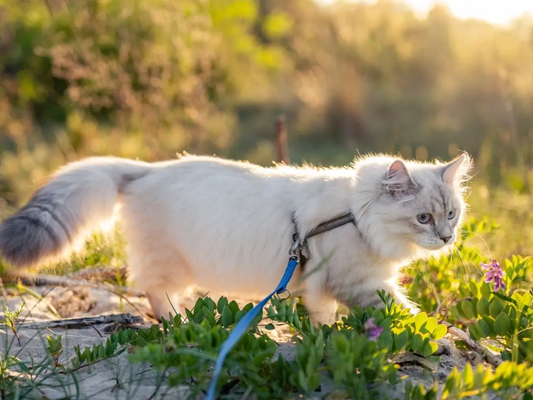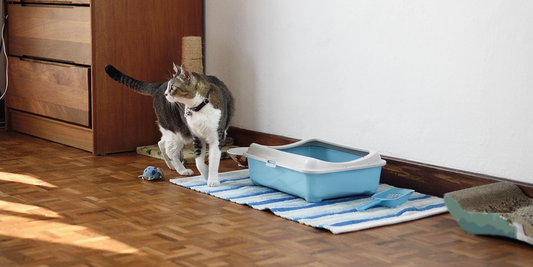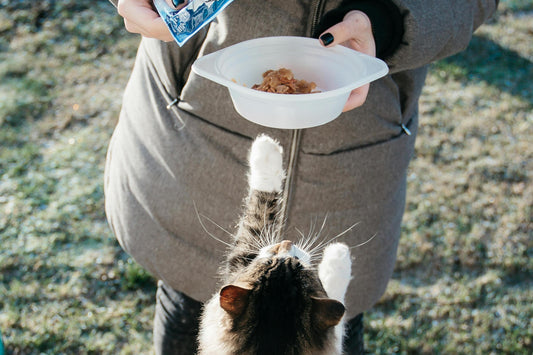Many of us are familiar with high blood pressure, or hypertension, in humans but may not realize that our feline friends can also suffer from this condition. While hypertension is often a symptom of an underlying disease like kidney disease or hyperthyroidism, it can also occur independently, without a clear cause. It's essential to be aware of this, as hypertension in cats can have serious health implications.
Regarding the health risks of hypertension in cats, the consequences are comparable, primarily affecting organs like the eyes, kidneys, heart, and brain. Unlike humans who routinely visit medical facilities for annual blood pressure screenings, cats lack such preventive checks, thereby leaving few indicators for owners to detect a dangerously rising blood pressure in their feline companions.
Symptoms to watch out for High Blood Pressure
- Blindness
- Changes inside the eye such as bleeding
- Seizures
- Disorientation
Prompt veterinary consultation is crucial as the symptoms of hypertension in cats may become irreversible. If the hypertension is secondary, stemming from an underlying disease, other symptoms may manifest. The veterinarian will likely conduct a thorough examination, including applying a blood pressure cuff to the tail or leg, and may conduct additional tests if needed to reach a diagnosis.
Accurate Diagnosis
During the diagnostic process, your vet will take several blood pressure measurements over time to ensure an accurate assessment. This helps rule out "white coat" syndrome, where stress in a clinical setting temporarily elevates blood pressure. Blood and urine tests may also be performed to screen for conditions commonly associated with hypertension.
Addressing Feline Hypertension
If your cat's hypertension stems from an underlying condition, your vet will prioritize treating that first, expecting the blood pressure to drop accordingly. However, in emergent cases where blood pressure poses an immediate health risk, treatment to lower it will commence immediately. Hypertension related to hyperthyroidism often resolves with thyroid treatment, but temporary medication may be needed to maintain normal blood pressure levels in the interim. In contrast, hypertension linked to kidney or heart disease often necessitates lifelong medication to keep blood pressure under control.
Treatment Options for Feline Hypertension
Oral medication is the most common treatment method for feline hypertension, with various drugs available. However, regular monitoring of your cat's blood pressure is crucial, even during treatment. This allows for dose adjustments and ensures the veterinarian keeps track of your cat's overall health and well-being.
The Importance of Diet for Managing Hypertension
As a general rule, we are often advised to limit our salt intake due to its association with hypertension, and the same applies to our feline companions. Many processed cat foods, certain treats, and even treats like tuna in brine tend to be high in sodium. If your cat has hypertension, it's crucial to switch to a diet with lower sodium levels, which can be obtained from your veterinarian. However, it's worth noting that dietary changes alone may not be sufficient to manage severe hypertension in cats.
With proper treatment, many cats with hypertension can enjoy a long and healthy life. However, the prognosis varies depending on the severity of the condition and its underlying cause. Since some symptoms of hypertension, like blindness, can be irreversible, it's imperative to consult a veterinarian promptly if you suspect your cat may be experiencing health issues.








